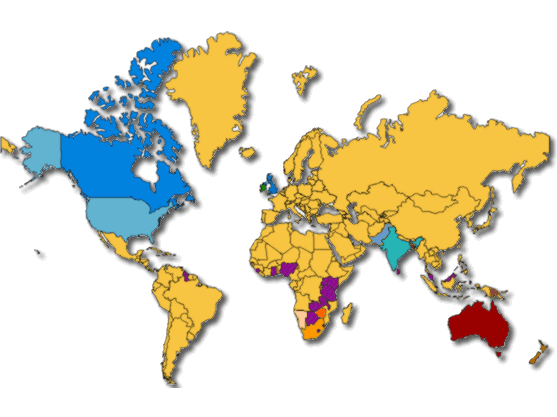Why study linguistcs?
Linguistics and foreign language teacher training
Future teachers of English as a Foreign Language (EFL) need to give their students instruction in English pronunciation, spelling, vocabulary and grammar. But language teaching, at the more advanced levels in particular, is often concerned with the contrast between prescriptive rules enforced by school- and grammar books on the one hand, and a high degree of linguistic variability on all levels in actual usage on the other hand. Moreover, students need to acquire pragmatic knowledge, e.g. using the right words and expressions to establish and maintain social relationships in a specific communicative situation and socio-cultural environment.
English has become the lingua franca, the unrivalled instrument of international communication across national borders in science, business, aviation, technology, the internet, pop culture etc.
This has the advantage that many students will already be familiar with a number of English words and phrases and will bring with them some motivation to learn and study the language, be it initially only to understand the lyrics of their favourite pop song. The development of World Englishes and the fact that there are now more non-native than native speakers has also led to an enormous diversification of English, or rather, the emergence of many Englishes which are studied by linguists around the world. It is obvious that foreign language teaching needs to account for this variation and place English in its global context.
Taking into consideration that the ultimate goal of foreign language learning in many countries is near-native speaker competence, this diversification leads to questions such as:
- What is "standard English" and who qualifies as a native speaker?
- What is the standard you should teach, and what linguistic forms represent "real" present-day English, both in speaking and writing?
- What teaching materials are the right ones for your students?
- Do (prescriptive) grammar books always describe "correct" usage, or is it necessary to develop strategies for verifying their claims?
- What is "(in)correct" usage and who is to decide?
Such questions are related to two fundamental, opposing views: the prescriptive view of language, which is (unfortunately) still the dominant attitude towards language in the traditional English classroom, and the descriptive approach to language that accounts for the ways language varies and how it is used in social and regional contexts, a view which lies at the heart of contemporary linguistics.
The many questions connected with the phenomenon of English as a world language may suffice to illustrate why a thorough and well-founded training in linguistics is the prime prerequisite to be able to appropriately select linguistic material for your students, to competently explain linguistic issues, and to adequately analyze and assess your students' language performance. Linguistics in the context of foreign language teacher training needs to address the ways in which linguistics can be applied to the foreign language classroom and what benefits it has for your future teaching of English.
In Bremen, you will learn how to understand and analyse the English language and its expansion in its historical and cultural context. You will be equipped with the theoretical background to describe, analyse and explain linguistic data and apply these practical skills and tools in small research projects (research-based learning, "forschendes Lernen"). We promote the development of key qualifications such as team competence, presentation skills and familiarity with the new media.

Job opportunities
In the course of your training in linguistics, i.e. learning how to study language scientifically, you will acquire skills like analytic reasoning and argumentation, making insightful observations, formulating and testing clear hypotheses, drawing conclusions, and communicating findings to a wider community by using modern presentation techniques. With these skills, you are well-equipped for a variety of jobs in the following fields:
- foreign language teaching
- teaching linguistics at university level; working as a researcher
- working in the computer industry (e.g. speech recognition, search engines, and artificial intelligence)
- higher education (e.g. curriculum development, language testing and assessment)
- translation and interpreting
- working in the publishing sector (as a translator, developer of teaching material, technical writer, proof-reader, editor or journalist)
- speech and language therapy
Further Informationen
- Why major in linguistics (and what does a linguist do)?
- Becker-Mrotzek, Michael et al., Hg. (2000), Linguistische Berufe. Ein Ratgeber zu aktuellen linguistischen Berufsfeldern. Frankfurt/Main: Peter Lang.
Job postings
- AREAS Stellenausschreibungen
- academics.de Stellenausschreibungen
- Linguist List

